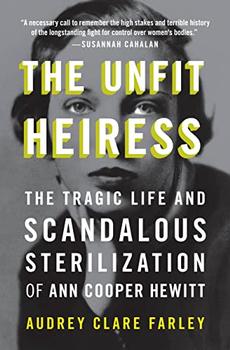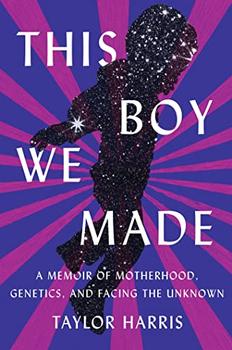Summary | Excerpt | Reading Guide | Reviews | Beyond the book | Read-Alikes | Genres & Themes | Author Bio

Sarah Ramey's life appeared to be on track—she was a high-achieving Harvard student, a talented writer, an aspiring musician—but it all derailed rather dramatically in the wake of what seemed like a relatively minor illness. What started as a standard urinary tract infection (UTI) should have cleared up after a single round of antibiotics, but instead, it was just the leading edge of a decade-long descent into chronic illness and unimaginable pain.
Ramey quickly grew frustrated with doctors who dismissed her complaints of persistent pain and other symptoms, inevitably steering her toward a prescription for antidepressant medication when their medical specialties provided no easy answers. She might have simply written herself off as a freak of nature, had she not begun encountering dozens of other people—almost invariably women—whose stories were remarkably similar to hers, if not in specifics, then in overall patterns. In her book, she dubs these women WOMIs: women with a mysterious illness.
These women have, she discovered, a history of chronic pain and discomfort—often related to their reproductive and digestive systems. Frequently triggered by some kind of significant event—an accident, an acute illness, a rape, an emotional trauma—the women's conditions result in ongoing pain, exhaustion, and often shame for them and dismissal by their medical professionals. If they receive a diagnosis at all, it's an ill-defined, poorly understood one like fibromyalgia, chronic Lyme disease or chronic fatigue syndrome, the kind of outcome that leaves many patients with few resources for managing their very real pain (which many physicians publicly or privately believe is "all in their heads").
As for Ramey herself, that seemingly innocent UTI sent her on an odyssey—and not the good kind that people write epic poems about. Ramey, it turns out, had a multitude of risk factors—from a childhood spent eating processed foods, to an earlier bout of Lyme disease, to a tropical parasite—that may have contributed to her symptoms (which, be forewarned, she describes in clinical detail).
Ramey's cycles of health crises and modest improvements can grow exhausting for the reader (though one must remind oneself how much more exhausting they must have been for the author!). An inveterate researcher, she comes to her own conclusions about what is driving the conditions of WOMIs with such disparate but seemingly related symptoms. The answers are still not easily defined or easily treated, but Ramey—after her own long-fought battle—offers WOMIs a model for self-advocacy and for finding and building a solution that might give them a fighting chance at a functional, happy life.
The Lady's Handbook for Her Mysterious Illness is a painfully personal memoir of illness, as well as a toolkit for readers, especially women, who have grown frustrated by repeatedly being dismissed or ignored by medical professionals. It's also a philosophical treatise arguing that for women to become heroines in their own stories, they need to be willing to travel inwards and downwards, addressing their sometimes uncomfortable histories and finding the courage to listen—both to others and to their own needs.
For Ramey, who herself comes from a long line of physicians, one of her biggest hurdles was her faith in medical professionals and her willingness to follow their advice even when she questioned it. Only when she could embrace her anger could she begin to forge a different path, one that allowed her to use her knowledge of herself—not to mention her research—to find a set of solutions that worked for her.
As noted above, Ramey was fortunate—a white, Harvard-educated woman, surrounded by doctors, well-supported by a family who sympathized with her condition, able to benefit from health insurance and with the means to pursue effective treatments (such as functional medicine, which focuses on finding and addressing the root cause of symptoms, with multiple practitioners) that are not often covered by insurance. Although she recognizes her privilege and addresses it briefly at a couple of points during her memoir, some readers may feel that this acknowledgment does not go far enough to address the far greater barriers faced by others. That criticism aside, Ramey has provided a valuable service to all WOMIs—and their families and caregivers—in helping them validate their own experiences of illness and find their own paths to a better future.
![]() This review was originally published in The BookBrowse Review in April 2020, and has been updated for the
May 2021 edition.
Click here to go to this issue.
This review was originally published in The BookBrowse Review in April 2020, and has been updated for the
May 2021 edition.
Click here to go to this issue.

If you liked The Lady's Handbook for Her Mysterious Illness, try these:

by Audrey Farley
Published 2023
For readers of The Immortal Life of Henrietta Lacks and The Phantom of Fifth Avenue, a page-turning drama of fortunes, eugenics and women's reproductive rights framed by the sordid court battle between Ann Cooper Hewitt and her socialite mother.

by Taylor Harris
Published 2023
A Black mother bumps up against the limits of everything she thought she believed - about science and medicine, about motherhood, and about her faith - in search of the truth about her son.
Your guide toexceptional books
BookBrowse seeks out and recommends the best in contemporary fiction and nonfiction—books that not only engage and entertain but also deepen our understanding of ourselves and the world around us.